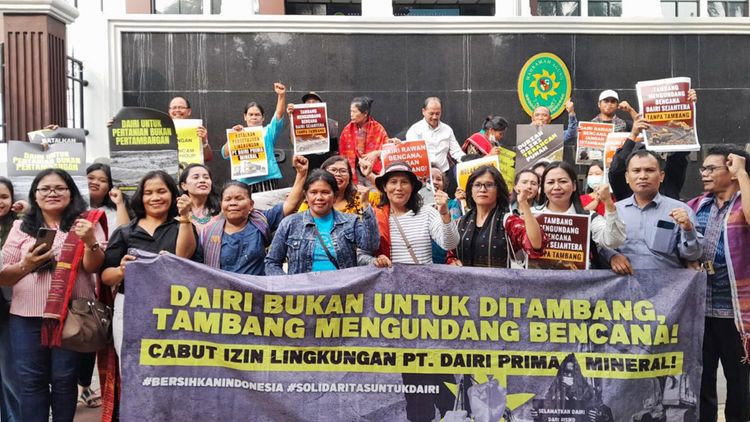Asia Undercovered #28

Indonesia Election results
As expected, Joko “Jokowi” Widodo has won re-election by about 10 percent, according to Quick Counts released by several reputable polling organizations.
Now comes the power-struggle – both due to the fact that challenger Prabowo Subianto will likely challenge the results, and because Jokowi will have to form a coalition to maintain control of Parliament, as his party, the Indonesia Democratic Party of Struggle, only looks to have won about 20% of the Parliamentary vote. Here’s a great piece on what’s next for Jokowi and Indonesia from Tim Lindsey at The Conversation.
Regardless, election day here was smooth, turnout was high, and the overall process a true testament to the progress Indonesia has made in the past 20 years since emerging from a long dictatorship.
Undercovered this week
As we near the one-year anniversary of the historic election in Malaysia, things are not going nearly as well as many hoped. From piecemeal reforms, a slowing economy, and signs of growing religious, ethnic nationalism, anger and fear have replaced hope and euphoria. A telling – and worrying read on Malaysia Baru by Bridget Welsh in Global Asia.
40 years ago, former Prime Minister Zulfikar Ali Bhutto was executed by the military. Mahir Ali writes on the long reverberations of that fateful day for Pakistan.
Xinjiang Update: The same week that Notre Dame burned, news emerged that similarly aged and nearly as historic 800 year old Keriya Mosque was intentionally destroyed in Xinjiang. This comes alongside reports of hundreds of other Mosques either leveled, or expected to be destroyed soon. This is how you eliminate a culture, reports Islamic scholar Rachel Harris.
Logic Magazine just released an issue on China, and it’s worth reading. This piece by Darren Byler on how invasive security has turned Uyghurs into ghosts, unable to think, feel, or act in their homeland, is really dark and troubling.
According to Gecko Project, land grabbers are using indigenous ceremonies to force local peoples to give up their land in Papua, Indonesia. It’s complicated, and shows the lengths that corporate interests will go to take what is not rightfully theirs. Unfortunately, as Kate Walton reports for Al Jazeera, environmental issues did not get much attention in the election.
Elections
Anti-junta parties, who won the majority of seats, are intending to form a government in Thailand. But electoral laws, meant to enshrine the power of the military, may make it impossible for them to govern – if they’re even allowed to take their seats. (Sarah Bishop, East Asia Forum).
I enjoyed this piece in Scroll asking the media to take a deeper look into what India’s poor and marginalized voters really feel – and care about (Kalpana Sharma). One thing they might learn is that environmental issues are, surprisingly, a top concern for urban Indians, possibly driven by growing air pollution concerns, as Mayank Aggarwal reports for Mongabay. Elections have begun in India, and will continue, in phases, for the next few weeks
Hidden realities of rapid urbanization
Asia’s cities are rapidly growing. From Jakarta to Delhi, Hanoi, Bangkok, and nearly everywhere in between, migrants are moving to cities not prepared to properly house them. In Beijing, this means living in Cold War era Nuclear Bunkers, as, according to this piece in National Geographic, up to a million people might live.
A fascinating photo essay on the realities of modern Asia by Ye Ming and Antonio Faccilongo.

Asia Undercovered: Journalist Nithin Coca's weekly roundup of the news, events, trends and people changing Asia, but not getting enough attention in the US media.





Member discussion